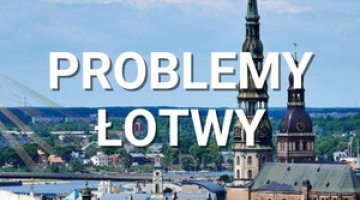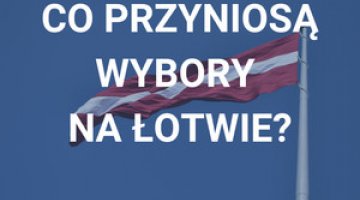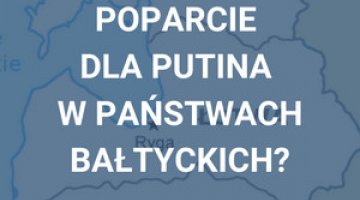Latvia: Dombrovskis leads his third government, the Russians are still in the opposition
On 25 October, Latvia’s Saeima approved the composition and the programme of the new government, which will be led for the third time by Valdis Dombrovskis, who was prime minister before the elections. The government has been formed by three parties, which hold in total 50 of the 100 seats: the centre-right Unity, the Reform Party led by the former president, Valdis Zatlers, and the nationalist All for Latvia. The new government is also supported by six independent MPs who left the Reform Party during the coalition negotiations. The Harmony Centre, a party supported by the Russian-speaking minority, which won the election, and the Union of Greens and Farmers, which represents the interests of Aivars Lembergs, the mayor of Ventspils, are in opposition.
Commentary
- The central point of dispute during the formation of the new coalition was whether to accept the Harmony Centre in government. The Reform Party led by Zatlers wanted the Russians to join the coalition but backed off due to an uncompromising objection from Unity, its closest partner in parliament. The strongest protest to co-governing with the Russians was expressed by the right wing of Unity, represented by the former foreign minister, Valdis Kristovskis. It feared it would lose the part of its electorate who are sensitive to national issues to the nationalists if the Harmony Centre joined the government. The coalition of Unity and the Reform Party was finally supplemented by the nationalist All for Latvia party, which will control two ministries: Justice and Culture. The fundamental anti-Russian approach of the nationalists will be a burden for the government both in its relations with the Russian-speaking minority (approximately 35% of the population) and in contacts with Moscow, which has been accusing Riga for not respecting minority rights for years.
- As the Harmony Centre remains outside the government, the ethnic divide in Latvia will be preserved and Russian radicals will become stronger. They have become more active and are stating that the conciliatory stance presented by the centrists (withdrawing most social demands and even recognition of the Soviet occupation of Latvia as a historic fact) has proven unsuccessful. In November, the Central Electoral Committee is to collect signatures under a civil project for the amendment of the constitution. This envisages making Russian the second official language in Latvia. It is unlikely that the project will be pushed through, but this initiative may bring popularity to radicals, who have promised to create a new grouping which will stand up for the rights of Russian-speaking citizens of Latvia more firmly.
- All the coalition members agree that it is necessary to continue the restrictive fiscal policy, including keeping the budget deficit below 3% of GDP and fulfilling obligations with regard to its creditors (this December, Latvia is closing the loan programme with the IMF and the EU as part of which it has obtained over 4 billion euros in 2008–2011). President Andris Bērziņš also supports the savings policy as this will ensure the stabilisation of public finances, which were close to collapse in 2009. The government has promised to be determined in its efforts to adopt the euro in 2014, which will additionally improve Latvia’s credibility among international financial institutions and investors. However, it will be difficult to meet the necessary criteria as this will depend to a large extent on the external market situation, and most of the Latvian public are against the adoption of the euro. Although Latvia will have an economic growth in the region of 4 to 5% for the first time in three years, this will not have a major impact on the reduction of its high, 16%, unemployment rate. The reduction of this and bringing to a halt the increasing tendency of Latvians to emigrate to earn money will be the greatest challenges that the Dombrovskis-led government will need to face.





